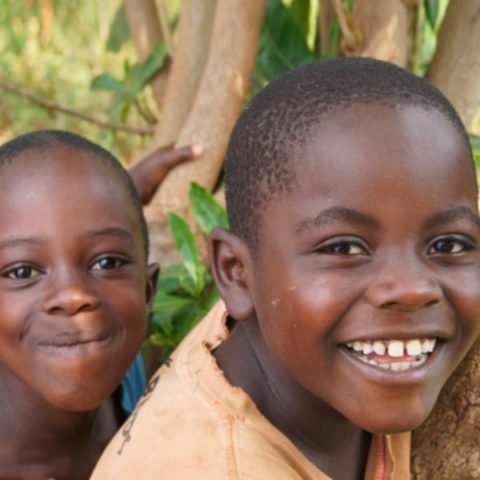
Roundtable on mental health, wellbeing and person-centred approaches
This Roundtable, hosted by Africa CDC in partnership with Anesvad Foundation, CBM Global and Liverpool School of Tropical Medicine, was held on 24 January in Kigali, Rwanda directly after the International Conference on NTD Research. Thank you to Maneesh Philip (from ILEP member Effect Hope) and other ILEP member colleagues for this report for ILEP Update readers.
Aim
The aim of the Roundtable was to enable progress in addressing the intersection of mental health and wellbeing, stigma and NTDs. These are key priority areas in the new Africa CDC NTD Strategy, the WHO NTD Roadmap 2021-2030 and other strategic frameworks. In particular, the Roundtable explored concrete actions to increase investment in mental health and NTDs across different sectors, and to strengthen efficient mechanisms for allocation of funds.
Background
The Roundtable was convened in a positive context. Research has demonstrated effective integration of mental health and wellbeing considerations into support services for people living with the effects of NTDs. There is a paradigm shift in global strategic frameworks towards person-centred approaches, consideration of mental wellbeing, and integration of services across sectors that impact on the lives of people affected. However, NTD services still tend to largely focus on preventive chemotherapy or on provision of limited medical services for people affected. Some countries are starting to work across vertical programmes, for example to improve access to mental health care for people with NTDs, or to coordinate access to social interventions like livelihoods with other sectors. Welcome developments are improved collaboration between government and non-state providers, and a stronger role for organisations of people affected by NTDs.
There is now well-established consensus on what changes need to be made, and an increasing technical capacity and political commitment to implementing these changes. But if the required structural reform is to be successful, domestic and external financing are required to support scale-up of good practice examples. At present, only a tiny proportion of funding for NTDs is directed to this area of work, despite being identified as a priority in the major consensus documents. The Roundtable brings collective expertise together to consider how resources can be effectively used to support global strategic shifts towards person-centred and community-driven approaches, while maintaining momentum in reducing prevalence of NTDs.
Key points from the Roundtable
Africa CDC shared its strategy for strengthening health systems across Africa, focusing on mental health, non-communicable diseases, infectious diseases, and NTDs. Key pillars of the strategy include integration, capacity building, collaboration, research, and resource mobilization. They have three flagship programs:
- Mentorship for NTD Program Manager Leadership
- Investment Case to build stronger evidence for funding
- Integration into primary healthcare and data systems (e.g., DHIS2).
Liverpool School of Tropical Medicine (Julian Eaton) emphasized the need for integrating mental health and NTDs, highlighting evidence that people with NTDs are more likely to experience mental health issues. He stressed the importance of funding and policy support for these integration efforts, with examples like the Global Fund’s commitment to ringfence funding for mental health.
Liberia (Karsor Kollie) discussed the challenges of integrating mental health into NTDs, citing the need for leadership, advocacy, evidence around economic benefits, and sustainable financing. Liberia shared an example of successful integration through the REDRESS project (mentioned above), which highlighted the need for policy changes and resource mobilization which are now being implemented through the TRANSFORM project (integrated NTD program).
Nigeria (Gabriel Afolayan) focused on starting integration at the policy level, using the NTD Master Plan as a framework. He highlighted the need for coordination across sectors, clear strategies, tailored interventions, and training for health workers.
Anesvad Foundation (Inés Egino) has focused on a person-centered approach to skin NTDs in West Africa, integrating mental health with health systems strengthening. Anesvad’s strategy emphasizes community-based approaches, government support, capacity building, and collaboration.
END Fund suggested including mental health indicators in NTD dossiers and advocated for integrating mental health into national health sector plans.
Effect Hope (Maneesh Phillip) has supported Liberia’s NTD program since 2012 by developing an integrated approach to health systems strengthening, starting at the national policy level and extending to county, primary healthcare (PHC), and community levels. This effort evolved through various phases, now under the TRANSFORM project, which supports Liberia’s NTD Master Plans from 2016-2020 (extended to 2022) and the new Master Plan for 2023-2027. Effect Hope collaborates with partners like Anesvad Foundation and American Leprosy Missions, ensuring sustained funding for these initiatives. As part of the REDRESS project, mental health was incorporated into the new Master Plan and is included in TRANSFORM’s implementation, with a focus on training health workers at all levels. Effect Hope also partners on similar projects in other countries in Africa and Asia, studying models that improve access to care for people affected by NTDs.
Outputs and next steps
The Roundtable revealed a shared commitment to integrating mental health into NTD programs across various African countries, with emphasis on leadership, policy changes, evidence-based approaches, and sustainable funding.
The organizers will publish a report of conclusions from the Roundtable, for sharing with participants’ organisations and to encourage further engagement to raise the profile of person-centred approaches and investment in sectoral reform. The report will also be shared with key organisations such as WHO, UNECA and other UN agencies, African Union, World Bank, African Development Bank, WAHO, ECOWAS and other African regional economic blocks.